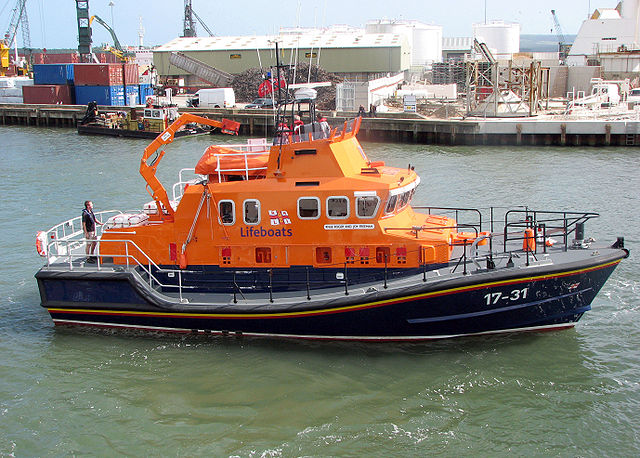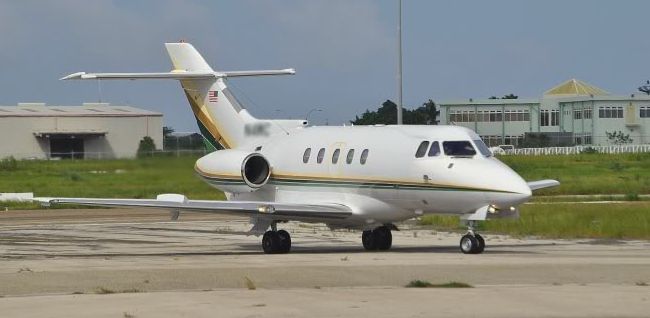May Day over the history of the world started as a pagan celebration, has been co-opted by Christians, labor activists, Communists, and Anti-Communists (that’s why America has a separate Labor Day). The State of Wisconsin’s employment outlook has not improved and it reminds me of the day several years ago when I was flying a jet and one of the engines failed and we used the phrase “Mayday…”
I woke up Tuesday to the news that on May Day, Scott Walker was to be roaming the state of Wisconsin on another fundraising junket. Why, on this of all days, was Scott Walker joined by New Jersey blowhard Governor Chris Christie on a two-stop tour of the state? To help him defend his worker suffocating policies; which after a year in office finds him the subject of a recall election.
One day in October back in 2006, myself and a fellow company pilot were flying one of the owners back from Florida to Illinois in a six-passenger jet that was six months older than me (I’m close to two score now). The age of the jet was not the issue; it was an internal oil seal in the engine that decided to fail.
There were a few fortunate occurrences that made this episode much less harrowing than one may think. We had been in Florida for four days and our passengers being late actually helped the situation. It was still 85 degrees when we departed Naples, Florida after 5 p.m. and had the engine failed on takeoff at a much higher temp, like earlier in the day, it could have been much worse.
Most twin-engine planes are certified to be able to take off on one engine even if it fails while still on the runway. But temperature, higher elevations, and obstacles can complicate a single-engine climb once you limp into the air. Being obstacle-challenged Florida and sea-level the chances were much better, but it still gives one pause.
By the time the engine did fail, we were at 34,000 feet under clear blue skies approaching Gainesville. This was probably one of the best places for this to happen, with lots of altitude and time to make decisions. I heard a “pop”, everyone else in the plane heard a bang and the engine instruments started to go a bit haywire.
It wasn’t that bad—just a bit disorienting since the sudden asymmetrical thrust jostled us a bit, but it felt no different than when instructors fail an engine in the simulator. And that’s why it’s so safe to fly. The training available to flight crews so closely mirrors real-life scenarios that when this failure happened I was more worried about the engine shut-down being a result of fuel contamination than being surprised by the event.
It was not fuel contamination. Within a few seconds we had figured out that the left engine shut down but the right engine soldiered on, heck the autopilot didn’t even kick off. We ran through our memory checklists; then consulted the proper paper ones for this situation and we were ready to contact Air Traffic Control (ATC) to coordinate a descent and landing in Gainesville.
So how does this relate to Scott Walker? I was flying in the left seat and was on the controls for this leg. It’s situations like these that are one of the many reasons there are two pilots. It spreads out the workload and keep heads cool. While we were both captain-qualified, I had been working with the right seat pilot for sometime on his radio communication skills. It wasn’t a language barrier he was struggling with; more it was getting him to phrase his radio calls to ATC properly to get the desired result.
In the acronym-heavy, arcane language of pilot-controller communications, using the wrong terms can sometimes prompt undesired responses, or at the least, excess transmissions which on normal days clogs the frequency and annoys everyone.
With the airplane stable and a quick chat with our two passengers, we were ready to find a nearby airport to land. I told the Pilot Not Flying (PNF), who even on normal flights does all radio communications, to tell ATC we were declaring an emergency and needed to divert to a nearby airport.
Declaring an emergency is not routine, but aircraft do it for all sorts of reasons and especially in the airline world it sometimes approaches a non-event. “Declaring an emergency” allows the Pilot In Command (PIC) to do whatever it takes to resolve the emergency, including breaking whatever FAA regulations it takes to “meet the extent of the emergency”.
In the example of the airlines, if an aircraft begins to run low on fuel due to traffic congestion, they will declare an emergency as a matter of company policy. It’s not taken lightly, nor is it abused but it shouldn’t evoke heart palpitations every time. Unless of course there is a fire, the top rips off the airplane, or Samuel Jackson.
Unfortunately my PNF, in notifying ATC of our situation, probably used the wrong words when he clicked the push-to-talk switch and uttered,
“Mayday, Mayday, Mayday”
When you read those words just now, what thoughts come to mind? Professional pilots both corporate (like I was at the time) and airline take yearly training on all aspects of our profession and when we cover emergencies the phrase “May Day” repeated three times is used when all hope is lost. It’s a radio communications term derived from the French venez m’aider, meaning “come help me” according to Wikipedia.
“A mayday situation is one in which a vessel, aircraft, vehicle, or person is in grave and imminent danger and requires immediate assistance. Examples of “grave and imminent danger” in which a mayday call would be appropriate include fire, explosion or sinking.” – Wikipedia.org
We were obviously not in a “grave” situation. We had one operating engine, plenty of fuel, clear weather, and lots of altitude to work with. I wanted the PNF to say something like, “Jacksonville Center, 123 X-Ray-Golf is declaring an emergency, we have a left engine failure but we are stabilized and would like options for landing nearby.”

On the water a Mayday call may summon a rescue boat like this one, or maybe James Cameron. Courtesy: Wikipedia.org
We were up so high it took nearly 20 minutes just to get low enough to prepare for landing. Obviously the PNF was a bit wound-up and I had to make a second transmission to deescalate the severity of our situation in the minds of the controllers. I lapsed into a bit of a “cool pilot” delivery as I talked to reinforce the calm I was trying to project.
The misguided communications did not spill over into our in-cockpit communication and procedures. We talked over our options as we descended and even had time to give our passengers a few “thumbs up” signals to let them know that all would be well.
Landing a plane on one-engine is really not different than with two since the engines are at idle when you touch down. The aircraft does fly a bit cock-eyed on approach due to the asymmetrical thrust, and a higher speed helps, just in case you have to go-around; which like losing an engine on take-off is a little tricky.
We landed normally and the fire trucks met us after we cleared the runway. They determined that the few wisps of smoke still wafting from the tailpipe was just residual oil that was burning off the still-hot left engine that was now toast. Then my legs started to shake.
The fact that my legs waited to start shaking until after we landed meant that the system worked. All the investment in training that the industry and my employer made worked to deliver a successful outcome. Two pilots reverted to their training automatically, setting aside emotions that might have interfered with our duties. The training took over the situation and guided us to a safe landing.
Our two passengers, a husband and wife, had flown with us many times. The husband was part owner of the corporation I flew for and just like for his employees he seemed to have contempt for us pilots as well. He was always complaining about the costs of having the planes and how us pilots were somewhat of an entitled bunch.

Wisconsin Governor Scott Walker (Right) and New Jersey Governor Chris Christie speak in Milwaukee on Tuesday May 1, 2012. Courtesy: http://article.wn.com
Pilots may have what looks like a great job, but it’s a long hard slog to get there; and the cushier aspects of the position often have some steep trade-offs. The pay is never what people think it is, especially if you fly for private individuals or corporations. The hours are long and random and you can spend days away from hearth and home. In private transport, often you are not only the pilot, but also the caterer, aircraft cleaner, baggage handler, flight attendant, dispatcher, and car rental agent. This is all before you even start the engines.
Once you are ready to go, your passengers are often late, or change destinations when they arrive at the plane. One time I flew the wife and son of the other owner to Cleveland. After landing I told them we would be back the next day to pick them up. It was at that point I was told we would be staying overnight, “Didn’t someone tell you?” she said.
That’s when you have to suddenly find a hotel and then transportation to buy new underwear and clothes. We do this for the love of the job, and I do love this job. The husband and wife on that plane when the engine failed thanked us repeatedly for getting them on the ground safely. The truth was we did exactly what he hired us to do; fly the plane safely in all situations. That’s what professionals do; we put in the hard work that allows us to perform as required, even if Scott Walker is on the plane.
The honeymoon with the owner did not last long. He soon was back to his old ways of complaining about us, even though over the months before and after that eventful flight, he was slowly cutting staff and asking us to do more with less. And we did, finding new creative ways to keep the flight department functioning with less pilots, and less money. We never cut corners, but we had to be creative to keep the aircraft flying.
This effort was rarely, if ever recognized by the owner. All he knew is that he was spending too much money on airplanes, but yet he expected one to be ready when he wanted to fly. Did me and the PNF who landed the aircraft on one-engine want a parade, or a bonus, or garlands? Not really, we just wanted job stability, a schedule we could plan our lives around, and pay that reflected the effort we put into the job.
Does this sound familiar? The workers of the State of Wisconsin don’t require adulation for the jobs that they love. They just want to work their jobs, and have a decent quality of life in return. But Scott Walker, like that somewhat ungrateful owner the PNF and I returned to the earth, sees state workers as liabilities, like line items on a sheet.
Eighteen months after that engine failure the flight department had been whittled down to two pilots when at that point we were given three months to find a new job. I did find a new job which left one pilot to fly a hangar full of two-pilot aircraft. So he had to start hiring contract pilots, whose per hour cost is way more than two salaried pilots, to fly with him. Today that flight department does not exist.
The governor’s extreme cutting of the budget along with the marginalizing of its workers to blunt criticism will, like in the above example, lead to higher costs in the end. The first cost is high unemployment. The job losses keep piling up for Walker a year after his “magic budget” was supposed to save all kinds of money and make the state better.
The second cost is long term. Wisconsin is and will suffer a brain-drain as long-tenured civil servants retire or go elsewhere. Replacing this collective intelligence will take decades and Walker’s cuts to education degrade highly the quality of education our children receive. The result is a future workforce that will likely need remedial education before they can be trained for actual jobs.
May Day is a public holiday in many countries that actually celebrate the worker and its contributions to the vibrancy of society and their nations. It’s ironic that Scott Walker spent May Day running around the state celebrating a “Billionaire’s Paradise” he is on his way to creating. But I suppose that was the plan all along. His policies are and will have the dual effect of degrading the quality of the Wisconsin worker; and dimming chances that out-of-state employers will continue to covet our workforce and follow that early 1980’s Wisconsin Department of Tourism slogan, “Escape to Wisconsin”.
Mayday…




